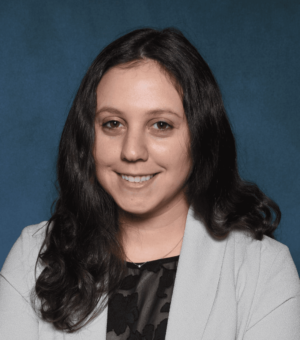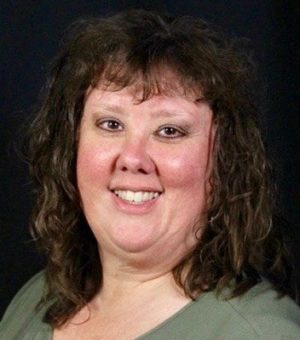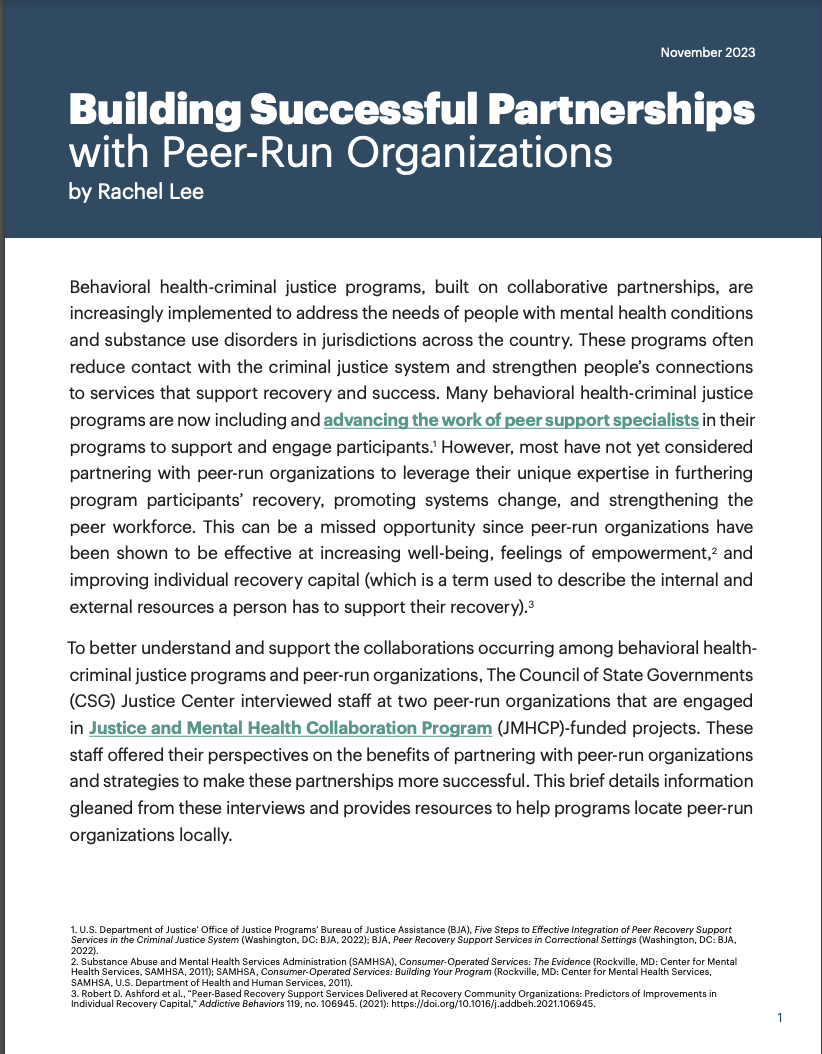Mental Health
People with mental health conditions—including those with serious mental illnesses such as bipolar disorder and psychosis—face disproportionate contact with the justice system. Once in contact with the justice system, too often, they do not get access to needed supports while in custody or preparing for reentry.
To address this, with the support of JMHCP, communities across the country have started implementing interventions at each point in the criminal justice system, from law enforcement contact to reentry, to connect people with appropriate mental health care and divert them to treatment whenever possible. These interventions include building crisis stabilization units, implementing mental health treatment courts, embedding clinicians in jails, using telehealth services, developing comprehensive case plans, and more.
Criminal Justice-Mental Health Learning Sites

Collaboration Spotlight

The collaboration between the Houston Police Department and The Harris Center for Mental Health and IDD—our local mental health authority—has been the reason for the many successes we have accomplished in better serving our community, particularly those who are living with or affected by mental illness.
Sergeant Rebecca Skillern, Mental Health Division, Houston Police Department
Selected Resources

Supporting Improved Responses to People with Intellectual and Developmental Disabilities
Co-Occurring Substance Use, Mental Health
Key Staff

Hallie Fader-Towe
Director of Justice and Health Initiatives, Behavioral Health
Hallie Fader-Towe works with local and state policymakers to craft policies, processes, and programs that bring research-informed approaches to their jurisdictions. In her positions with the CSG Justice Center, she has worked with jurisdictions around the country on collaborative, data-driven planning and implementation efforts to address criminal justice functions from initial detention through reentry, including a focus on people with mental illnesses. She has also managed the development of training materials on mental health courts and on judicial responses to the prevalence of individuals with mental illnesses involved with the criminal justice system. She has written on court case processing, competency to stand trial, dispute systems design for state trial courts, pretrial responses to people with mental illnesses, information sharing between criminal justice and mental health systems, and mental health court design and implementation. Before joining the CSG Justice Center, she was a management consultant with McKinsey & Company in New York. Hallie received a BA from Brown University and a JD from Harvard Law School.

Rachel Lee
Project Manager, Behavioral Health
Rachel Lee provides technical assistance to Justice and Mental Health Collaboration Program grantees and offers support on other projects that focus on the intersection of behavioral health and criminal justice. Prior to joining the CSG Justice Center, Rachel worked for C4 Innovations, where she provided project assistance to several recovery-focused Substance Abuse and Mental Health Services Administration initiatives. Rachel has also served as a therapist for people with behavioral health disorders in both inpatient and outpatient health care settings. Rachel earned her BA in psychology from Bates College and her MSW and MPA from Columbia University.

Allison Upton
Program Director, Behavioral Health
Allison Upton provides technical assistance to grantees and supports policy development and projects specializing in the intersection of criminal justice and behavioral health issues. Prior to joining the CSG Justice Center, Allison worked at the Center for Alternative Sentencing and Employment Services (CASES) as the director of court programs, where she oversaw the court and community operations of several alternative-to-incarceration (ATI) and detention programs serving adults with behavioral health needs in New York County. While at CASES, she developed a gender-specific track of ATI services for women involved in the justice system and provided training on evidence-based practices in screening/assessment in justice settings, gender-responsive recidivism risk assessment, trauma-informed case management practices, and cognitive behavioral group interventions aimed at minimizing risk of recidivism. Allison previously worked as a staff psychologist in inpatient services at the Manhattan Psychiatric Center and as the director of an outpatient program at the Bronx Children’s Psychiatric Center. She received her BA from the University of Miami and her MS and PsyD in clinical psychology from Nova Southeastern University.

